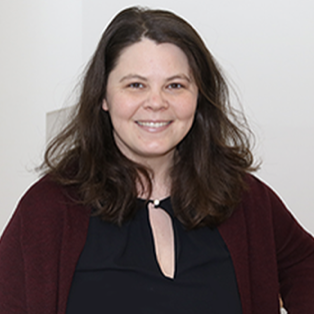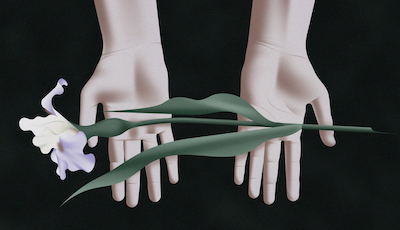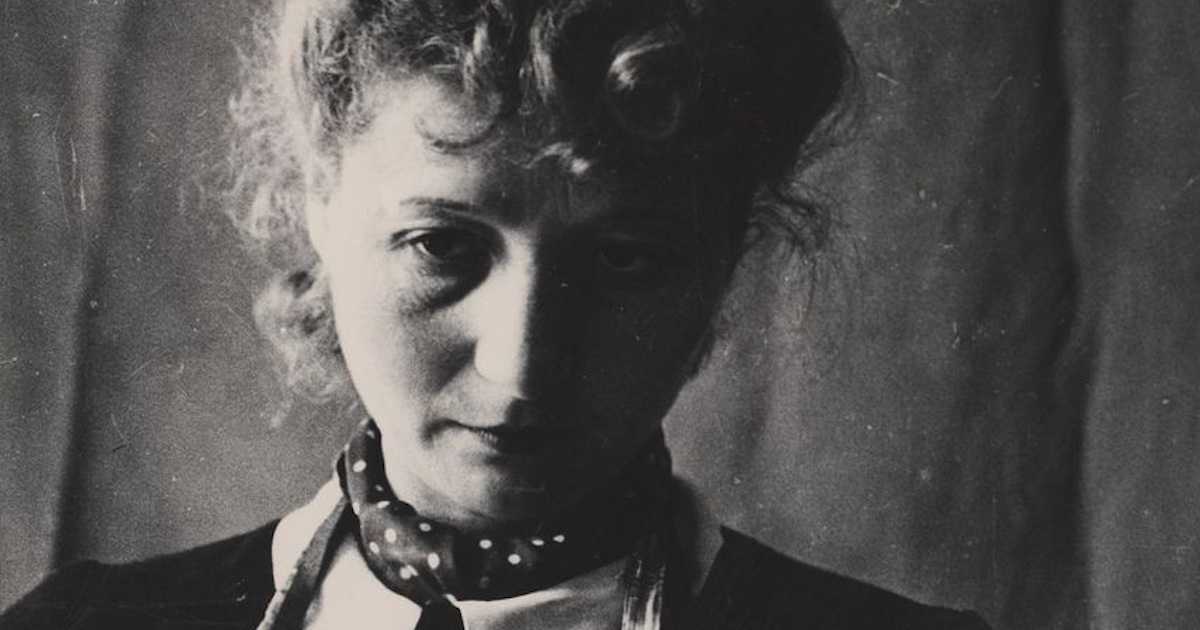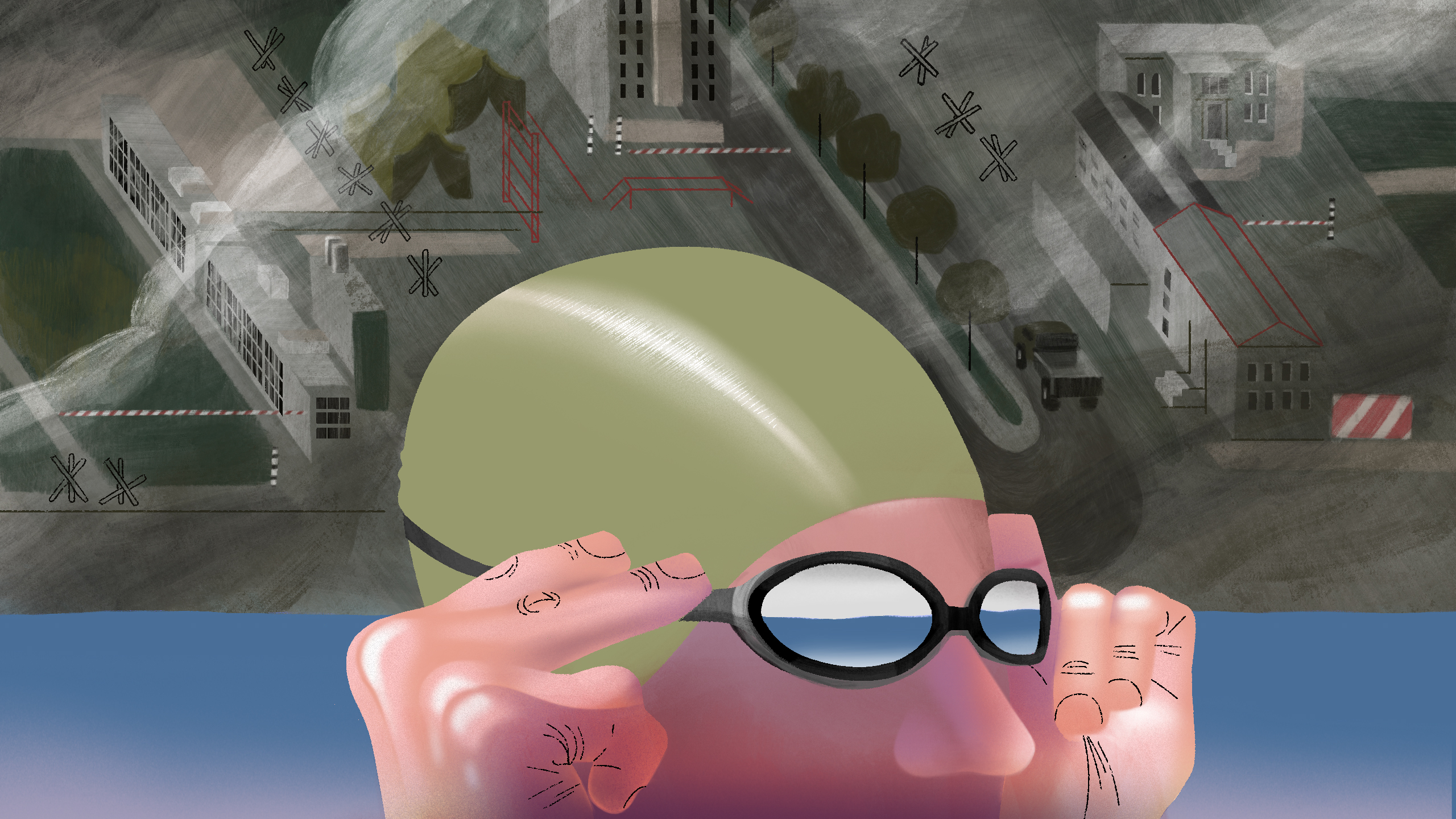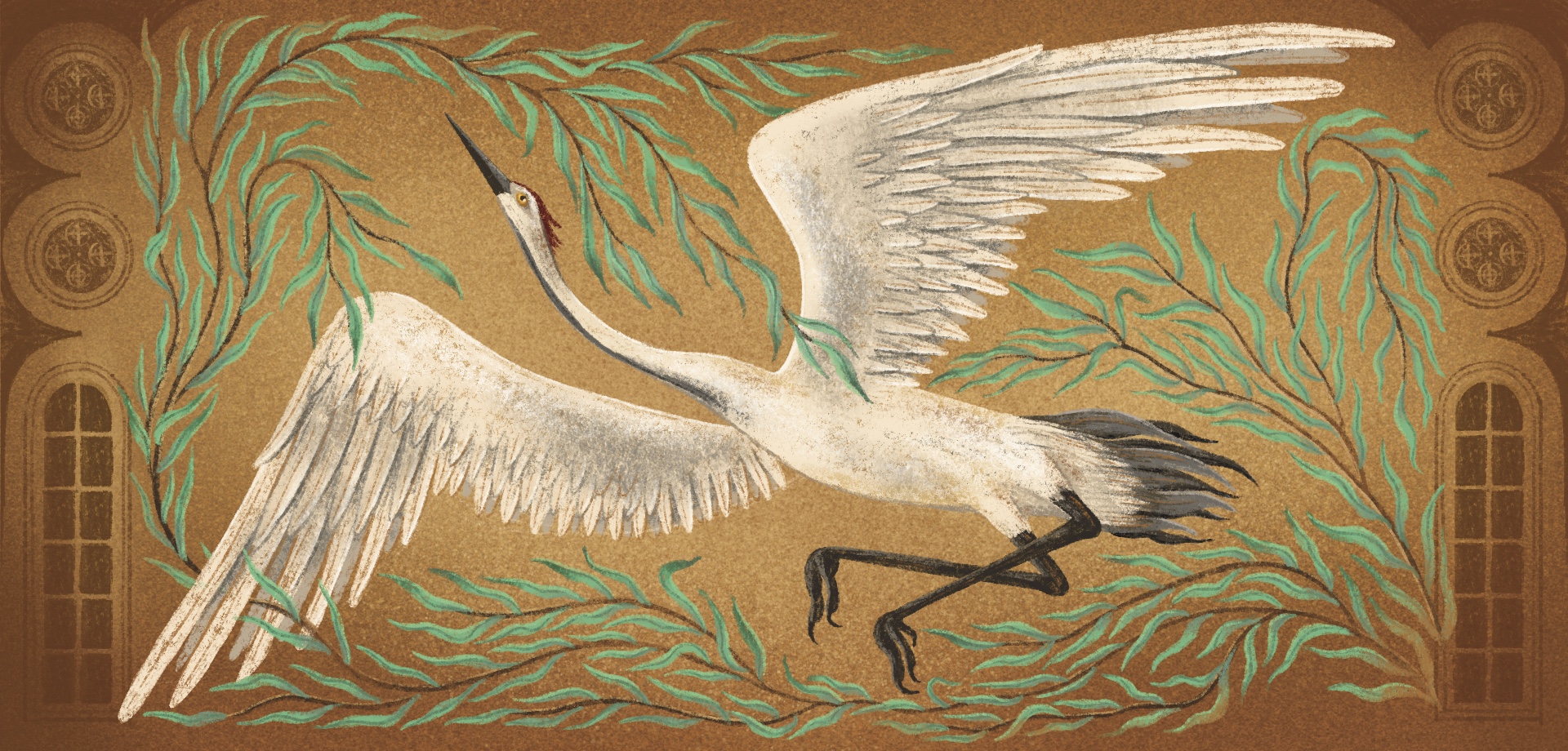
We shall be known by the company we keep
Enjoying close connections with people who like you are children of diasporas, wars and exiles, means that you have fellow travelers. This personal essay reflects on ancestral memories, the shadow of violence, and the intimate cartographies of friendship. It moves between Californian creeks and rivers, Lebanese mountain villages, old Armenian songs, and the charm of Ukrainian grandmothers. When the world fractures, chosen kin gather the broken pieces of themselves and offer each other the radical gift of presence.
My friend L asked me not long ago if I had somehow embraced unknowingly the nomadism of our horseback-riding forebears. I have moved around so much in recent years that it has been hard for her to keep track. She finds the sudden shifts dizzying. She isn’t the only one. I didn’t know the answer, and so, like any good academic, I ended up researching the question. Scythians, like all nomads, have cyclical patterns of movement; they return to familiar places known to provide certain resources and networks of support. I thought about my own life and recognized that the shoe fit. I return regularly to places that are reliable, nourishing and safe (not necessarily all at once). The people who live in these oases are family – sometimes by blood, but mostly by choice. These are people who have moved with me through periods of painful self-discovery; they have seen me at my most vulnerable and volatile and come out with me on the other side.
For children of diaspora, this kind of intimacy is hard earned. We are raised in unforgiving environments, where excellence and high achievement become protective shields against criticism and uncertain futures. Put your head down, work hard, maybe your citizenship and passport won’t get shredded this time. With high achievement comes hypervigilance, an acute awareness of your surroundings – subtle shifts in energy, facial expressions, signs of instability. These are survival instincts (and trauma responses) passed down intergenerationally. These are also qualities that help you find your people from other communities in the “melting pot” that is America – Polish, Bulgarian, Armenian, Korean, Vietnamese, Mexican, Lebanese. Familiar patterns of cautiousness, modesty and frugality that seem out of sorts in a late capitalist consumerist society allow you to recognize one another. They signal that you come from a family that has endured hardship, hunger, and systemic violence. My Baba Maria saved rubber bands, washed out and reused plastic bags, used old containers and jars as cheap Tupperware; she had a packet drawer, never threw out bread (or any food) and – as Americans learned recently from President Volodymyr Zelensky – spoke with her eyebrows. My mother’s mother, she helped raise us and these sensibilities became part of us too.
My friends from these diasporic communities were the ones who called when Russia’s full-scale invasion of Ukraine began, many coming from families that fled war, poverty, and political persecution themselves. J was among the first. We talked for a long time, though all I remember is one sentence: “I’m sorry; I know how this feels.” This – a feeling I have yet to put into words. This – something almost no one in my life understands. This – something I never knew she carried with her all this time. When others say to me “I’m sorry,” it registers differently; coming from J, I knew she meant it. J is Lebanese-American. We became friends when I started my PhD program in California and have been friends ever since.
J had a Stanford connection; her parents taught there for many years and she and her brothers grew up on campus, moving later to a beautiful Palo Alto house on the edge of a creek. They were feral children in the best sense of the word – always exploring, digging in the dirt, taking care of goats. J told me once that she has a resistance to poison oak because she drank milk from goats that grazed on this plant as a child. I believe her. J has a ritual of introducing me to all her plants and trees whenever I see her again after a long while. I learn how they’ve grown, about their hardships and successes. In time, I found out that she picked this up from her father, born in a village in North Lebanon. He did the same thing once, giving me a guided tour of the flora that I would be taking care of while staying at their house.
More recently, while in Winnipeg, I met a Lebanese man, who owns a lovely bistro in my old neighborhood. We fell into conversation one afternoon during lunch as he described every single thing that would be served to us, including the health benefits of each ingredient. I told him about J and her family and their generous, warm ways that resembled his. He smiled and said they come from a village so high in the mountains that it was where you went to meet God. When I shared this with J, she was moved, but clarified that their village was at the base of the mountain, just 300 meters above sea level. The cold mountain air flows to their home in the valley past fragrant cedars as it descends from where you go to meet God.
I visited J in Beirut less than a year before Ukraine erupted fatefully in protest in 2013. I had experienced a cascade of personal and professional setbacks and found myself in cold and wintery Kyiv doing archival research. J decided to try and brighten my mood by inviting me to celebrate the New Year with her family in Lebanon. Beirut was a quick three-hour flight from Kyiv – one of many facts that shows that these two places, which are depicted as worlds apart, are closer than we think. A military friend of the family, who had been deployed to Lebanon during its civil war, was very concerned about me going there and made sure to tell my parents about it emphatically. They replied that they had long ago lost the ability to control what I did with my life. J was honest about the risks, but said we could find refuge in those mountains if something happened. I didn’t know it then, but I caught a glimpse into Ukraine’s future, what it might be like when this horrible war finally ends. Lebanon was alive with an energy that I had not encountered before, people living each day to the fullest, and joyfully so, because they learned the hard way that tomorrow is never a certainty.
It was in Lebanon that J and I finally met, though we had been friends for five years by then. In America, our hyphenated selves were kept at a distance, the pressures of assimilation making us compartmentalize those sides of ourselves tied to other places. That changed for me in Lebanon; our worlds collided; time and place flattened; my mental map was remade. One afternoon, we tried and failed to make it to J’s father’s village; this was my fault entirely as I spent way too much time photographing something that now seems entirely irrelevant. We stopped in Batroun on our way back to Beirut to grab a bite to eat. As we walked around, my friends showed me “Our Lady of the Seas” – a simple, beautiful Greek Orthodox church built at the edge of the Mediterranean on old Phoenician walls that stand to this day. Then J’s brother M tugged on my arm gently and led me, with palpable excitement, into St. Stephen’s Cathedral. The service was in process and in Arabic, but, as the child (and great grandchild) of Ukrainian Greek Catholic priests, I knew the precise moment we had walked into by the sounds that I was hearing. I was so overwhelmed that a knot formed in my throat, as I processed feelings of intense familiarity in a land that I knew almost nothing about.
This was a Maronite church – of one of several hybrid denominations we see in “the lands between” in the Middle East and Eastern Europe. They preserve Eastern Rite traditions while being in communion with Rome. The Uniate, or Greek Catholic Church, in Ukraine is counted among them. Lebanon is so often depicted as a country shackled by sectarian strife, but it has long been a place where faiths can exist peacefully alongside one another. Armenians sought refuge in Lebanon during the genocide perpetrated by the Ottomans, as did Palestinians during the Nakba, and Syrians fleeing the regime of Bashar Al-Assad.
Lebanon felt familiar because in many ways it was. The Black and Mediterranean seas are linked by the Bosporus, the Aegean, and the Sea of Marmara. These waterways link me to J and both of us to K, our friend with Armenian roots, whose family comes from Bardizag, a once vibrant Armenian settlement on the Sea of Marmara, now called Bahçecik. It was ethnically cleansed of its inhabitants during the genocide of 1914-15. As a young man, J’s dad traveled to Eastern Europe using ground transportation around these waterways – a journey to Kyiv from Beirut would be approximately 37 hours, about as long as it would take to drive from Cleveland to San Francisco. Ukraine and Lebanon are not that close, but also not that far, especially with air travel making it possible to fly over the seas that separate them. I have wondered often since then about how these places got categorized in our minds as being of entirely different worlds.
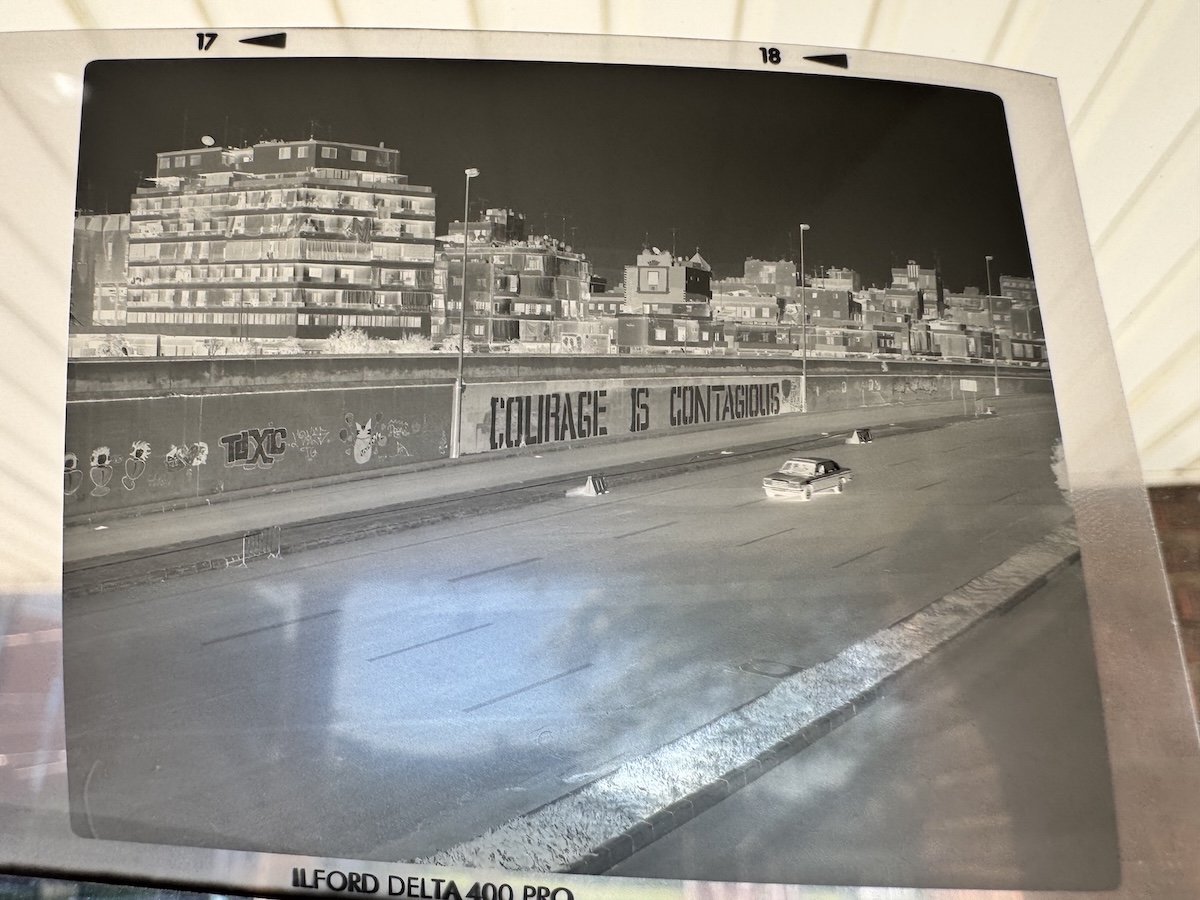
For J and me, Russia’s invasion of Ukraine closed this gap; she knew what was on my mind without me having to say much of anything, which was and remains a rare quality, and I was able to relate, reciprocally (but not fully), for the first time. The wars in Palestine, Lebanon, and Ukraine have deepened our friendship; they have also challenged it, our mutual grief in diaspora bringing us closer together, the contradictory geopolitical aims of decadent empires pulling at potential threads of solidarity.
Truth be told, I handled the launch of Russia’s full-scale invasion of Ukraine badly. As an historian, I was paralyzed by what I knew would come – a long and unnecessarily vicious war. The faculty at my university had just come back from a 35-day-strike; I was teaching Russian Politics and the Politics of Memory…and was very quickly pushed to the edge. My therapist explained to me why – my amygdala and prefrontal cortex were waging a titanic battle under extreme conditions. One wanted to scream, the other was called upon repeatedly to speak rationally, calmly, and in dulcet tones about Russia’s brutality. I was not sleeping or eating, surviving on adrenaline alone. Were this the first straw of many, this may all have turned out differently. But I’d been burned out for years from academic precarity. Whatever fuel remained burned up quickly and brightly…and in a matter of weeks. We averted disaster because our faculty was unionized and there were procedures in place for this. I went on a six-month leave of absence and left Winnipeg for California – one of my treasured oases.
My Teta Natalka, Baba Maria’s youngest sister, greeted me with open arms in Berkeley. She understood more than most the weight of my profession: bearing witness – which she sometimes framed as historical karma cleaning – especially if you are tied up intergenerationally with your work (she herself was born in a DP camp in Germany after World War II). She always made sure I was replenished whenever I came to see her. She’d make beautiful colorful meals and then take me on a tour of the flowers in the yard that were producing whatever amazing bouquet I was smelling at the time. Her house overlooks the San Francisco Bay, where the sunsets are unparalleled. She was an artist whose aesthetic sensibilities touched every aspect of her life and ours. We would listen to old vinyl records; we tried and failed to make rose jam from the neighbor’s petals that stretched into the yard, we would always visit the beautiful mushroom aisle at Monterrey Market, grabbing a slice of Gioia pizza afterward. We had our Berkeley rituals. Teta Natalka left us unexpectedly a little over a year ago. I miss her gentle generous ways, even more so her voice, her laugh and her counsel.
That first spring after February 24, 2022, she was still with us. It was there in Berkeley that J came to pick me up and drive us further north to her beautiful ranch. We agreed that I would benefit from spending some extended time in nature surrounded by trees and hilltops, creeks and rivers still full from the rains, and in the company of people who I trusted completely with the fragile shards of my person. It’s a beautiful piece of land nestled among state parks, where the oaks of Mendocino meet the redwoods of Humboldt County.
I love going to the ranch when the rivers are full and the rattlesnakes are underground. This is in winter, when fire and water meet amicably in California. These are the months for controlled burns, as there has been enough rain (usually) to minimize the risk of wildfires. The rivers and creeks are abundant enough to swim in – although very cold. It is incredibly therapeutic to immerse oneself in the frigid and fresh river waters of Northern California. As the war dragged into its second and third year, it is in these waters that I learned to regulate my nervous system with extended cold plunges in the spirit of Wim Hof. Once the waters were so cold that when I gripped the roots along the riverbank to pull myself out, I could feel their warmth in the palms of my hands. This kind of embodiment is a shock to the system, but it is one of the ways extremely cerebral people reset the balance.
During our visits to these naturally occurring swimming holes, I learned from K about the willow – abundant near rivers, incredibly versatile, used worldwide for everything from basketry to building materials to medicine to magic. They are also liminal – conduits between water and land, between life and death. Since childhood, my associations with the willow have been tied to Easter, because Ukrainians bless pussy willows on Palm Sunday. On Easter morning, our parents would wake us before sunrise. It would still be dark and we were so sleepy, but dressed to look our very best. We’d walk around the church three times with the rest of the congregation, wooden clackers clacking as we lamented the death of Christ in song. The priest would knock on the door of the church, symbolic of the stone covering Jesus’ grave. Then the doors would open, the bells ringing joyously (and loudly) as we re-entered the church. These chilly mornings are seared into my memory, as is the sensation of watching the sun rise through the stained-glass windows in the choir loft at St. Andrews, our Ukrainian Catholic church in a suburb of Cleveland, scattering shards of color all over. My Baba Orysia directed the choir then; I spent many Sundays as a child in the alto section, standing in front of my aunts as they sang and absent-mindedly ran their fingers through my hair.
When Russia attacked the city of Sumy this last Palm Sunday, massacring civilians returning from church services, it felt to me like something fundamental to my person had been sullied. I texted K, as I processed, to ask about the willow and its symbolism, searching for meaning in this horribly callous act. She said the willow is an amazing survivor and protector of creeks and rivers with an incredible capacity to create roots. Even a small broken chunk can travel down the river and begin growing again, wherever it lands. It is often the first plant to grow after a destructive flood to begin the process of riparian recovery. The willow is strong, resilient and adaptive enough “to roll with the dynamic natural cycles of destruction and renewal.” A more apt metaphor for Ukraine’s fight for survival would be hard to find.
The willow also reminded me of our first burn on the ranch, which coincided with the first anniversary of the full-scale invasion. I could not bear to be in Winnipeg, reliving everything in the same place where I had fallen apart. Luckily, it was reading week and faculty had freedom of movement. I went back to California and the ranch. My friends and I worked together over several days to build structures that could contain the wild energy of fire. I had thoughts about burning something in anger, which was abundant, but was steered toward the idea of burning something that might help release grief. K encouraged me to gather, thoughtfully and with consent from the flora around us, a bundle for burning. I gathered some willow, which along with its many gifts is associated with tears, mullein – a plant that deals with respiratory issues (we hold grief in our lungs it seems), and some sturdy oak – resilient, enduring, with a lot of symbolism in Ukraine and in my family. I thought the three together might work some magic.
This group of friends is a little hard to organize – somewhat like attempting to herd cats – so three of us stole away to have a quiet moment and light the bonfire (which would burn all day and which we had to watch until every glowing ember was out). As J’s partner worked on starting the fire, she put her arm through the hook of my elbow and gently pulled me closer to her. She then started to sing We Shall be Known by MaMuse. All it took was the first line of the song for the tears to come: we shall be known by the company we keep, by the ones who circle round to tend these fires. A year of anguish streamed down my face, as J finished the song and we watched the wood and my bundle catch fire.
The following February we did this again. What changed was that my friends K and J were also in anguish, processing fresh wars in places their families come from. Azerbaijan had launched a military offensive against Nagorno-Karabakh (Artsakh, in Armenian) in September 2023, forcing out all Armenians living in this territory, seen by many as a campaign of ethnic cleansing meant to end definitively a decades-long conflict over who should rule this land. The next month we saw Hamas’ horrendous attack on October 7 and Israel’s brutal response in Gaza, which I think of as a genocide. I am certain Russia’s vicious campaign of ethnic cleansing in Ukraine’s southeast was an emboldening factor in both instances. It is a war meant to wipe Ukraine off the map and its memory from history.
The wars of this century have made the legal framework established in the wake of World War II feel obsolete, a shocking indictment of us all. The four crimes against peace – war crimes, crimes against humanity, the crime of aggression and genocide – have almost entirely lost meaning, given the frequency with which they are committed worldwide with impunity. I don’t know where we go from here.
These thoughts followed me to the ranch, where I wrote the first draft of my article – Gender and Violence in Ukraine: Changing How We Bear Witness to War. One afternoon, I consulted with K, as branches of oaks and walnuts rustled overhead, reading some excerpts out loud to her to ask whether it was too strongly worded. I remember her flinching when I translated into English Vladimir Putin’s now infamous threat: “Nravitsia, ne nravitsia – terpi moia krasavitsa” (“You may like it, you may not, but you’ll have to endure it, my beauty”). When the war reached the one-year mark, I delivered remarks based on this paper also from the ranch, while sitting at the communal dining table, as K listened from the couch near the crackling fire. Processing these crimes in the company of people focused on empathic work and intergenerational healing is the only reason I wrote anything about the war, went back to work, and found the strength to leave academia and start anew.
In winter 2024, I came back to the ranch once again for two months to try and finish my first book, an historian’s greatest burden. J’s parents were visiting from Lebanon and decided to stay on for a few extra days so that we could overlap before they headed back. They sensed it was important to be together, to reconnect, and also beyond the interpersonal, that it was important to discuss as academics how to bring these wars more effectively into conversation. It was a lovely visit during which I learned, in a passionate exchange in the kitchen with J, that mint should be allowed to comingle unapologetically and without judgement with rosemary, thyme and oregano. This was, of course, in reference to how one should season potatoes. As an historian, I was also an ideal listener for J’s father’s many stories. One night over dinner he told me about his travels through Eastern Europe. Another evening we discussed his move to the United States, at a time in the history of my country when a lively intellect opened rather than closed doors to students from the Middle East. I will never forget the warmth in his eyes and voice when he said to me, as we made dinner together, that this war in Ukraine hurt him as deeply as if it was happening in his own country.
There are movements in Ukraine that have expressed solidarity with Palestine, some that are also working hard to unite the struggles. But the country as a whole and its diaspora have not come out clearly in support, despite the fact that these wars bear similar characteristics. There are complex interlocking reasons for this, but it’s an elephant in the room that is hard to avoid in this company, in this nourishing space, where intimacy offers both release and also at times provokes discomfort. Israel’s repeated invasions of Lebanon and brutalization of Palestine are part of the same story and are acutely understood as such by people in the region. Doing the work to understand this became for me not only an intellectual and ethical imperative, but an important act of friendship and solidarity. I remember laughing darkly with J over coffee one morning as we traded back and forth horribly insensitive things people have said to us about our homelands. At other times it was less comfortable, when she asked me on a walk in a beautiful national park – gently, vulnerably, but also firmly and from a place of pain – if my people see the intrinsic humanity in hers.
These are hard conversations. The differences in the way these wars are being covered in the United States are stark and reflect our country’s prejudices and intractable racism. J and I were able to set aside our defensiveness and hear painful things expressed – that result from misinformation silos and from being pitted against one another by imploding decadent empires – because we are friends and deeply love and respect one another. We didn’t resolve these issues on our walk, but I continue to think about what we discussed and what I can do to help build solidarity across these fronts – writing this piece, I decided, was one of them.
There was a lot to process once J and her parents left the ranch, which I did in chilly river waters. K would join me sometimes in the hot tub after my swims. One night, she shared her Armenian family’s story with me. Coming from Bardizag, they were among those who survived the Hamidian massacres, a precursor to the genocide that would happen later. Her great grandmother was from Istanbul, but it is through her oral testimonies that I learned of what happened there and later when they all came to America. After surviving the destruction of their world, K’s great grandmother had to travel all the way from Richmond, Virginia to California – a stronghold of the Armenian community – because the color of her skin made it impossible to buy land on the east coast and impossible to avoid the nightly terrors inflicted on communities of color by American white supremacists.
Descended from this older wave of Armenian refugees, K had a lot to say about grieving from temporal and geographic distance. She told me about a very old Armenian song called Groung (Crane) in which the singer calls out to a crane to hasten its flight and bring news from home. Zabelle Panosian recorded an incredible rendition of Groung for Columbia Records E Series (for ethnic and foreign language recordings) in 1917, with a tone and range that is both hopeful and inconsolable. What distinguished her record from the others was the unprecedented success of her releases, which sold well over 1,000 copies and remained in print until 1931. The ethereal quality of her singing comes from the “syncretic experience of the Western Armenian village near the sea of Marmara where she was born and a passion for the coloratura sopranos she encountered in Boston.” More simply, this record could only have been made in diaspora.
Panosian comes from the same town as K’s family. She was born Takhouhi Der Mesrobian in Bardizag in 1891 and would have been a child during the Hamidian massacres. At the time of the Armenian genocide, she was already in the United States, married to a man many years her elder, having had her first child by him at the age of 18. Groung was recorded as she processed the traumas of dislocation, watching from a distance the loss of her home (Armenia like Ukraine was briefly independent during the chaotic years of World War I) and the tragic genocide unfold. She used her voice to transform grief into action, singing old Armenian songs as only she could, a professionally trained singer at the height of her powers processing the unimaginable. Her concerts became gathering points for the Armenian diaspora; they raised funds for refugees, listened to her beautiful voice, and were transported temporarily on those frequencies home.
After our soak in the hot tub, I went back to my cabin, lit a fire, and looked for this recording by Panosian. I listened to all eleven songs in one sitting. I was afterward stunned and also softened, transported home to my own unresolved grief. I reached into my bag and pulled out a flash drive a family friend Annie had given to me sometime after my grandmother – Baba Orysia – had passed away. They were recordings of Annie and my grandmother, singing together as cantors at St. Andrews, during services where there was no choir. I had been unable to listen to them until that point. I heard my grandmother’s voice once again, singing intricate Byzantine melodies in harmony with Annie, wondering how she – also talented musically, also formally trained, also married too young – would look back on her life. I also thought about all the things I would ask and say if we had had more time.
Panosian’s voice sent me searching for my grandmother’s at a time when I was, unbeknownst to me, in the process of losing my own. When I left academia the next year, I went back to music, as a way to reconnect to myself and heal.
I found out that my voice bears clear signs of trauma – not from an overt physical injury, but a psychological one. I hear it in the voices of my friends too, the fatigue and damage that has come from talking endlessly about Russian colonial violence, war crimes, sexual torture, and a seemingly endless list of indignities intended to humiliate Ukrainians who resist.
I discussed this piece with J and K prior to publication because they figure prominently in the story and I wanted them to be comfortable. What they said in response surprised me. I have felt seen in our friendship in ways that are rare, but what was expressed in response to my words I could not have anticipated. J said, with sympathy and encouragement, that even though I’ve lost capacity in my physical voice, this piece is an extension of it. K added that it is a companion piece to my academic writing – a “behind the scenes” account that shows how one “claws back capacity” and resilience to do the work you know you are duty-bound to do. Seeing themselves on the page through my eyes was also unexpected. They saw that the work they do to cultivate our collective is working. They have created a safe space where we can seek refuge, recover and ultimately thrive. This piece opened something new in our friendship, which has surprised us all. But, if we are to be known by the company we keep, these friends and I are ok with that.
Illustration: Maryana Mikitiuk
